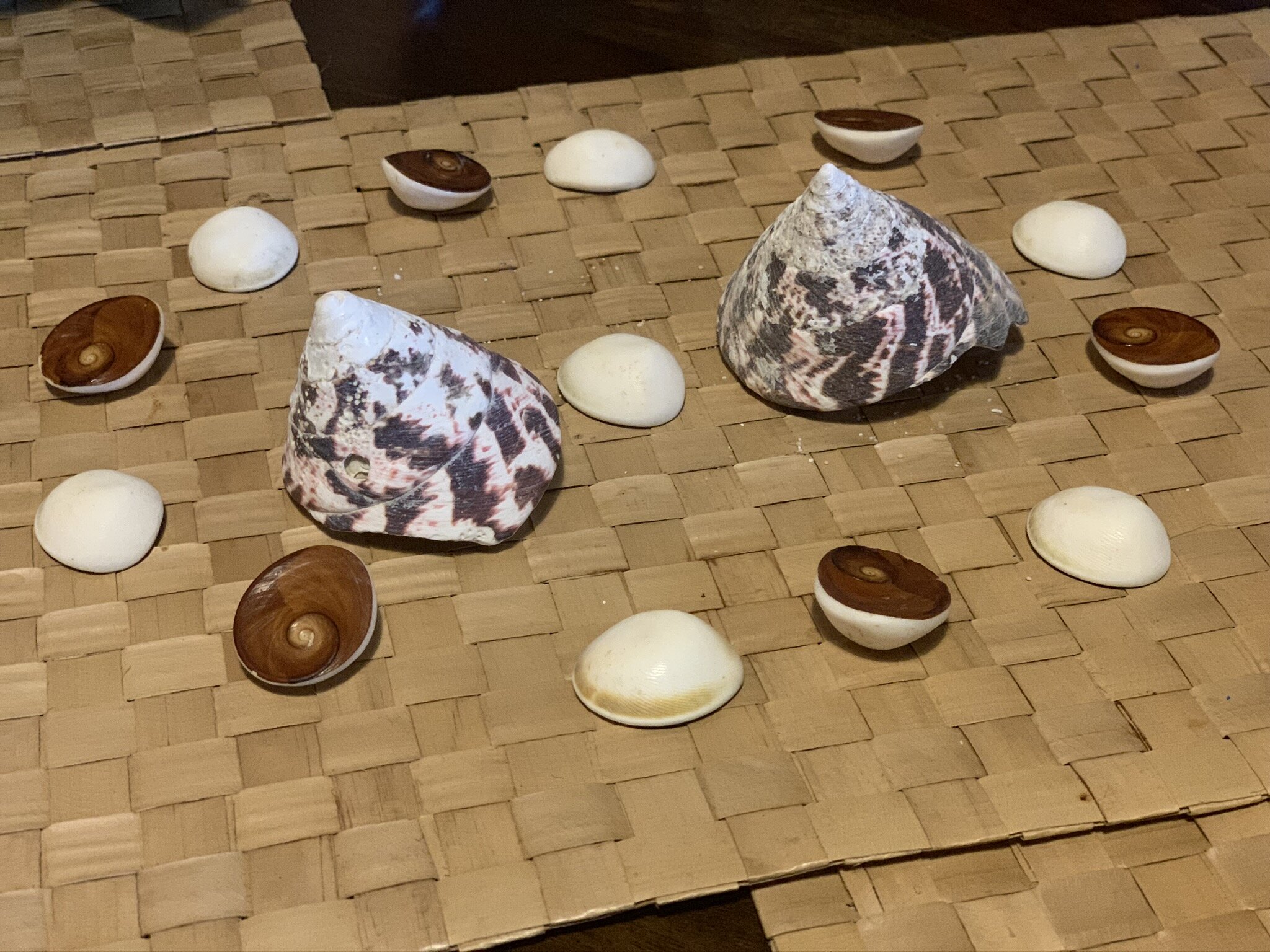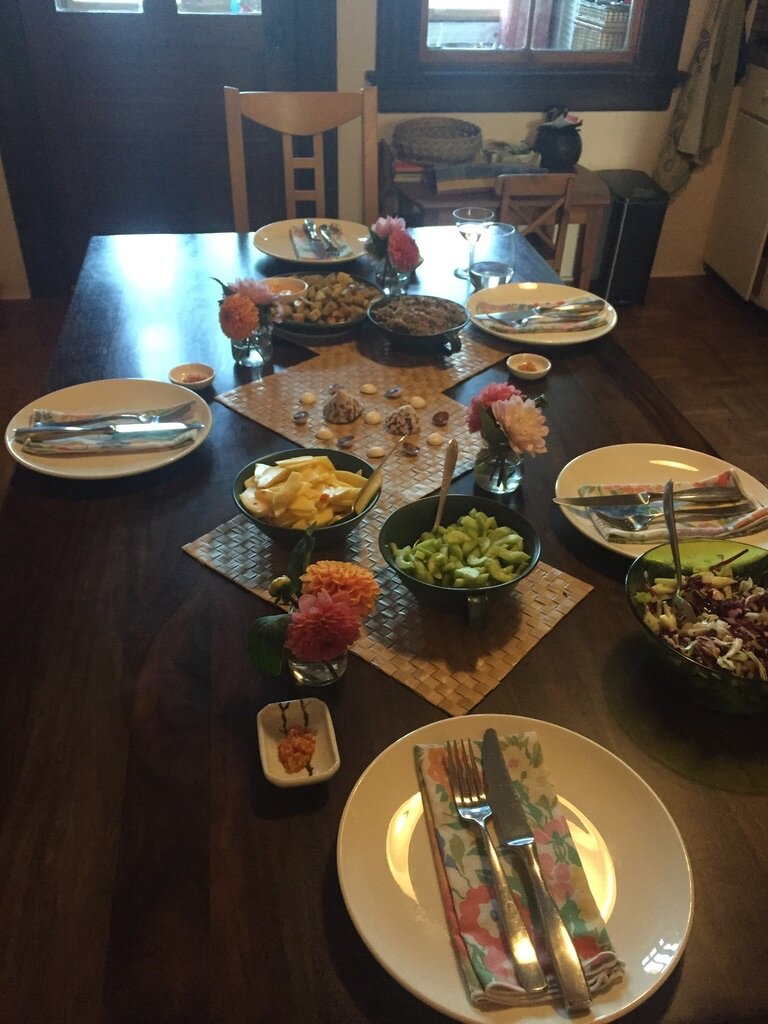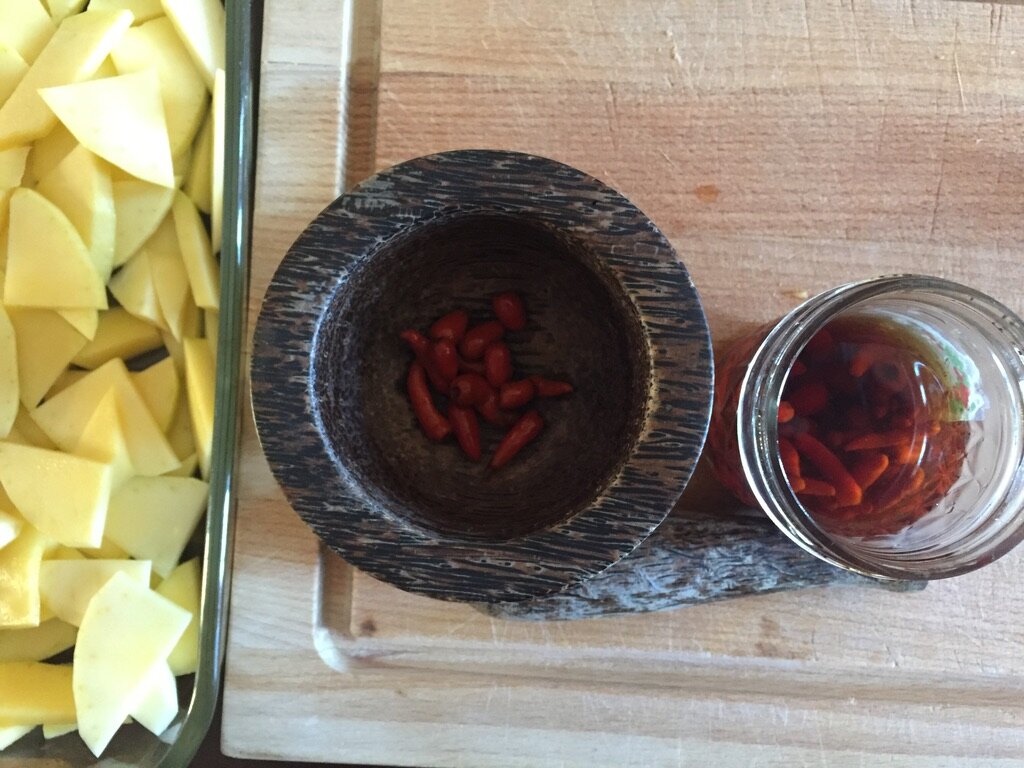Tenhos
Written by Angela Carrier | September 2019
Untitled | photo by Kayana Leon Guerrero
Pulan : Tenhos - stormy or angry
Assembling the core group was the first real recipe and the ingredients came together with an unexpected ease and presented themselves right on time. The writer, the poets, the designer, the elder, the photographer, the carver, mothers, grandmother, aunties, artists, dreamers, strong resilient creative spirits.
I followed an intuition by reaching out to several famalao’an I had just briefly met and knew very little about. Casting aside any of my fears and insecurity, I sent them messages and invitations. Was I being guided by our saina? As I think back to my original practical reasoning, it was to assemble artistic individuals, but I was also being pulled by something I couldn’t identify more than a sense of feeling right and of kindred connection. Later I would be able to understand more clearly from Lehua’s simple but profound statement, I know because I know.
As I prepared for the first gathering together at my home, I pulled out a stash of cat eye shells I had brought back from a stay on Guahan in 2007. They were a creamy white on the convex top and a shiny brown on the flat spiral side - the shells are called “pulan” in CHamoru and I arranged 13 of them on the center of the table. I asked everyone to choose a pulan to keep and to hold onto, a talisman of sorts. Sometimes we create our own rituals to feel and share connection.
Conversation flowed out over the meal, from intense and wrenching WWII stories of our grandparents on Guahan, to speaking and learning our language, to CHamoru dance. There was so much more to discuss and learn from each other, and this was just our first couple hours together.
After saying the last goodnights of the evening under the full moon, I was overcome with gratitude and relief. This was just the beginning and there would be more meals to share, stories to tell and time to create together.
Some of the prompts that will guide us forward are:
How might we uplift our matrilineal legacy as CHamoru women?
What do we need to revive, nurture and prioritize inafa’maolek (interdependence)?
How can we decolonize our minds through what we put in our bodies?
How can we use a meal to uncover and heal from intergenerational trauma?
Menu
Salmon steaks with kale, onion, garlic, and turmeric in coconut milk
Roasted sweet potato with sriracha mayo
Cucumbers with rice vinegar
Pickled green mango with donne’
Cabbage salad with miso dressing
Fina’denne’ dinanche
Butter mochi
Fresh market fruit salad with strawberries, sweet plums, pluots





